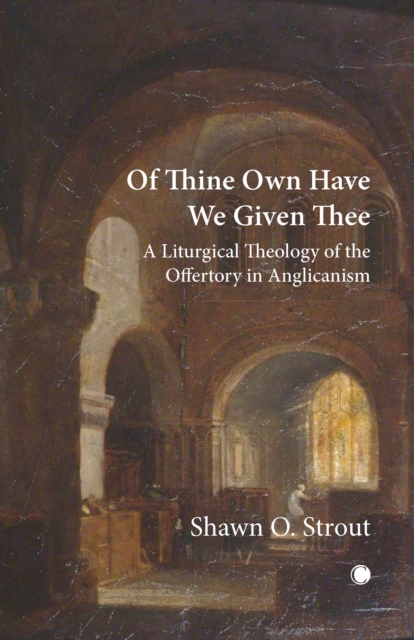
Of Thine Own Have We Given Thee : A Liturgical Theology of the Offertory in Anglicanism PDF
by Shawn O. Strout
Description
{\rtf1\fbidis\ansi\ansicpg1252\deff0\deflang2057{\fonttbl{\f0\fswiss\fprq2\fcharset0 Calibri;}{\f1\fnil\fcharset0 Verdana;}}\viewkind4\uc1\pard\ltrpar\sa160\sl252\slmult1\kerning2\f0\fs22 Every Sunday around the world, Christians offer money and in-kind gifts to the church, traditionally known as alms.
This act produces questions about what it means to offer God a gift when God has offered humanity the greatest gift in Jesus Christ, or the balance of favour or gratitude in the giving of these gifts.
These very questions, and more, have had a significant influence on the liturgy, particularly in the offertory, within Anglicanism.\parIn \i Of Thine Own Have We Given Thee, \i0 Shawn O.
Strout provides a comprehensive analysis of the offertory rites, including in his analysis other churches within the Anglican Communion, beyond the Church of England. Ordered historically, the book encompasses the sixteenth century through to current times, scrutinising\b \b0 the offertory and oblationary changes throughout their religious and historical contexts.\b \b0 Strout argues that the development of oblation in the offertory was neither arbitrary nor episodic but rather the result of sustained theological tension.
Using liturgical theology\rquote s tools of historical, textual, and contextual analyses, the book examines\b \b0 why these developments occurred and their importance for the church today.\kerning0\f1\fs17\par}
Information
-
Download - Immediately Available
- Format:PDF
- Publisher:James Clarke & Co Ltd
- Publication Date:29/02/2024
- Category:
- ISBN:9780227179956
Other Formats
- Paperback / softback from £27.50
Information
-
Download - Immediately Available
- Format:PDF
- Publisher:James Clarke & Co Ltd
- Publication Date:29/02/2024
- Category:
- ISBN:9780227179956






